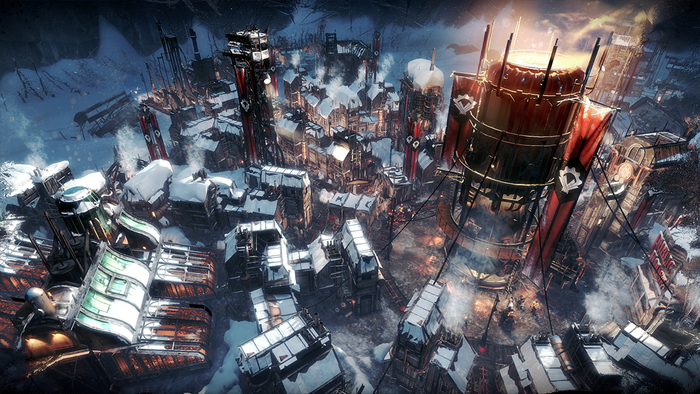Composer Tommy Tallarico, in Toronto on tour with Video Games Live last week, attended the Toronto Indie Game Con last week to give a casual but informative lecture, expl...

Composer Tommy Tallarico, in Toronto on tour with Video Games Live last week, attended the Toronto Indie Game Con last week to give a casual but informative lecture, exploring the often hidden worth of video games composers within the industry. Composers Don't Own Their Work, But Should Collect Their Money Drawing on 16 years of experience in video games development, Tallarico began his lecture by describing that the early lack of interest in video game music from game publishers can still be faced today. "Publishers aren't in the business of music, as they don't understand it," Tallarico opined, "but the interesting thing about music is that it's really the only thing that can be sold on its own outside of the game and generate money." Tallarico revealed "Jack Wall wrote the music for Myst 3, and they wanted to use that music in the Peter Pan movie. They paid him $40,000 dollars. Even if G4 are previewing one of my titles, and they're playing my music, that generates publishing revenue." Of course, Tallarico noted that this revenue was possible thanks to the deals he strikes with the publishers he works with. "Electronic Arts are one of the companies that get it; they have a whole music division collecting money on their musical properties. A lot of people like to bag on EA, but they're leading the way. All this music that is being exploited but isn't registered with music publishing is just lost in the ether. If the publisher isn't collecting the money, then neither is the composer." "The reality is this," Tallarico explained, "Composers tend not to own their music. There's a reason for this: publishers need control. George Lucas doesn't want to have to ask John Williams every time he uses the Star Wars theme, which is totally understandable, as the music is part of the greater IP. But at the same time, every time the music is played, he's paid." Contractual Expectations Establishing that his advice was not merely for composers but also perfectly valid for sound designers, even game developers when negotiating with publishers, Tallarico outlined the things he would ensure were in any contract he was prepared to sign. "The first thing I ask is that any time my music makes money outside of the original game, we split the money 50/50." He went on to describe "The second thing I require, and this is so important yet so simple it's over looked all the time, is payment for additional SKUs." Tallarico gave several personal examples as to why this was important, drawing on his deal with Earthworm Jim, which has been exploited, to his count, "about 25 times," and Tony Hawk, where Tallarico worked as sound designer. Tallarico's experience with Tony Hawk allowed him to segue easily into his third contract expectation – bonuses. "Publishers hate the word royalties," Tallarico quipped, "so we call it a bonus." Following, "People are often too afraid of publishers, and of asking too much. It shouldn't be this way. The questions you should ask are: How many units do you think you're going to sell? What is your marketing budget? And what is your break-even point?" Tallarico went on to elaborate, "because before a publisher even signs you they're going to know the data on this. That's what E3 really was, and what it will still be. E3 is all about the publishers sitting down with the likes of Toys"R"Us and working out how many units are going to be purchased. That's why E3 was created. It wasn't for the media, not for the booth babes, nor for developers. We as developers were fooled to think it was." "With Tony Hawk the estimated sales was originally 250,000 copies, and the break even point 125,000 copies. So what I asked was, 'what if, every 250,000 units, you pay me a bonus of $10,000.'" "What I am saying is that for any project that reaches or exceeds its expectations you should see a cut of it." Tallarico boasted, "Tony Hawk did 11 million units on Playstation alone. You do the math." Using further examples, Tallarico emphasised his point that such deals are becoming more and more important in these days of Xbox Live Arcade and cellphone games. "The language of your agreement can be more important than the content," he confided, arguing that you must be able to cut your bonus deal down until it is acceptable to the publisher simply to get the wording in the contract, as this allows you to use it as leverage in later contracts. Miyamoto's Lesson Responding to questions from the audience, Tallarico took them through the steps of copyrighting and registering music with a publisher, and revealed that he considers the PS3 and Xbox 360 audio tools "the best audio production tools in any field." In closing he recounted an anecdote about Miyamoto, with whom he worked with on Metroid Prime. "I asked him how he time lined his projects, as they're always tweaked perfectly. And he said, 'We figure out how long it will take to finish a game. Then I add 6 months to that. I have 6 months from the game is finished to go over it over and over and over again.' Now as developers, every single one of us who've ever put out a product has thought 'man, if we'd only had more time,' and Miyamoto doesn't." [Following Mathew Kumar's coverage of the 'How To Succeed At Indie Development' lecture from TIGC, Gamasutra will conclude its TIGC coverage tomorrow.]
About the Author(s)
You May Also Like







